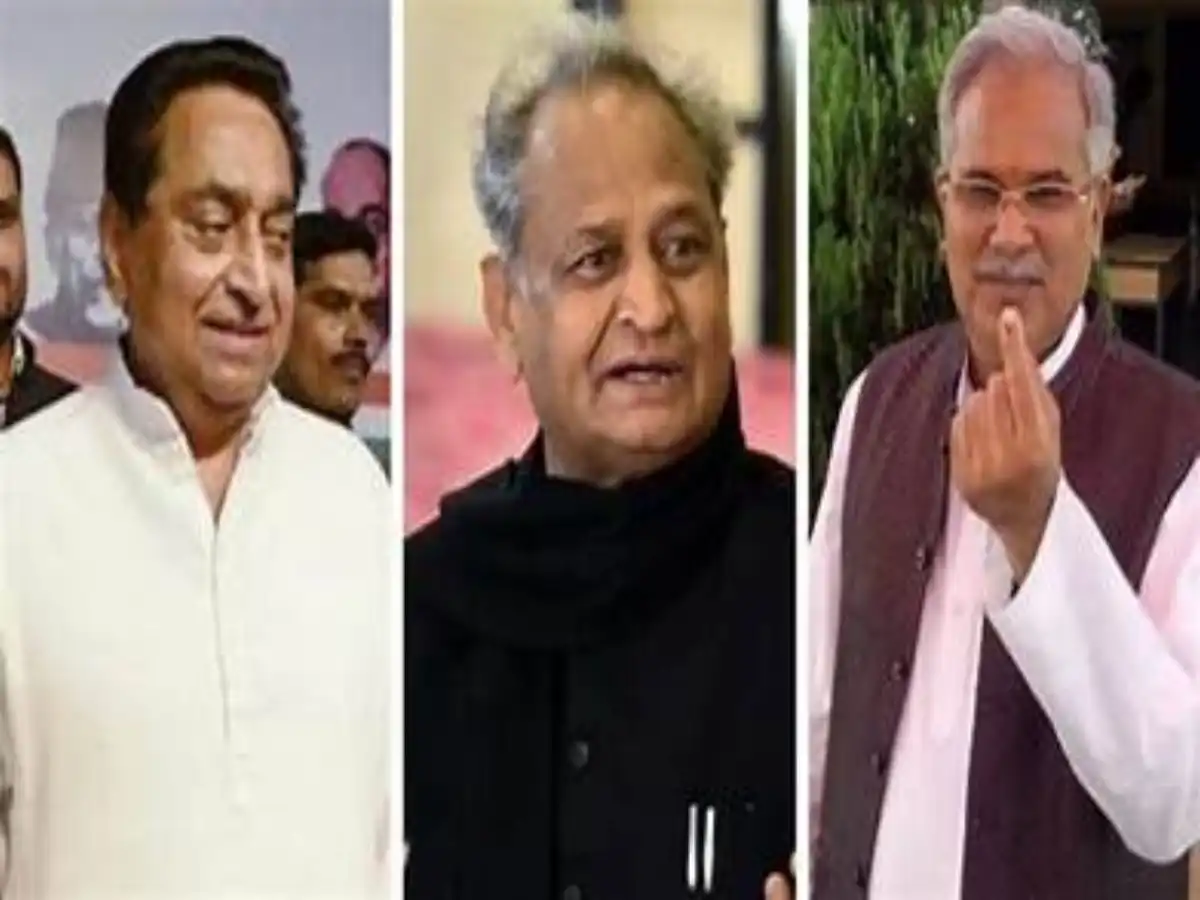In the closing months of the year, the outcomes of the legislative assembly elections in five states of India have come to light, with four states declaring their results while the vote count is ongoing in Mizoram. The Bharatiya Janata Party (BJP) swept victories in Madhya Pradesh, Rajasthan, and Chhattisgarh, while the Congress showcased its prowess solely in Telangana.
Ashok Gehlot, Rajasthan
Rajasthan witnessed veteran Congress leader Ashok Gehlot spearheading the electoral campaign in the state. His pursuit to secure victories based on progressive initiatives and local-centric promises was unprecedented, aiming to sustain power which hadn’t been achieved in the past three decades. Gehlot, at 72, was the face of the party in Rajasthan, extensively highlighting government schemes for several months preceding the elections. The entire electoral campaign seemingly revolved around Gehlot’s influence, evident from the prominence given to other party leaders only days before the elections. It’s evident that the entire election was fought on the strength of Ashok Gehlot’s leadership.
This election held immense political significance for Ashok Gehlot, safeguarding his ground in Rajasthan and combating opposition from within his party, notably with Sachin Pilot. Despite attempts to bridge the gaps during the elections, the strategy didn’t yield results, leading to Congress’s defeat in Rajasthan. Voices against Ashok Gehlot might now openly rise, potentially causing unrest within the party.
Kamal Nath, Madhya Pradesh
A scenario akin to Rajasthan unfolded in Madhya Pradesh, where the state witnessed an electoral battle centered around Kamal Nath’s persona. The party’s electoral campaign remained tightly focused around his image, with the active role of another prominent party leader, Digvijay Singh. Witnessing BJP’s overwhelming victory against Congress, the Kamal Nath-Digvijay Singh duo might face a diminished role. Finding a new leader for organizational purposes in the state won’t be an easy task as there isn’t a strong face available.
Jitu Patwari, seen as close to Rahul Gandhi and anticipated to lead the party’s future campaigns, lost the elections from Rau Vidhan Sabha seat, further complicating the leadership dynamics.
Bhupesh Baghel, Chhattisgarh
In the three Hindi-belt states, Chhattisgarh dealt a significant blow to the Congress. Bhupesh Baghel was perceived as someone who could pose a tough challenge to the BJP. Although Baghel wasn’t projected as the face of the Chief Minister, his imprint was vividly seen in the electoral campaign and strategy. Whether projecting himself as a son of the soil, advocating for OBCs, or emphasizing on government welfare schemes, his aggressive stance against the BJP was portrayed as a model in other states. BJP, on the other hand, adopted an aggressive stance against Bhupesh Baghel, portraying him as a corrupt leader who promoted forced conversions and failed to deliver for the tribals.









